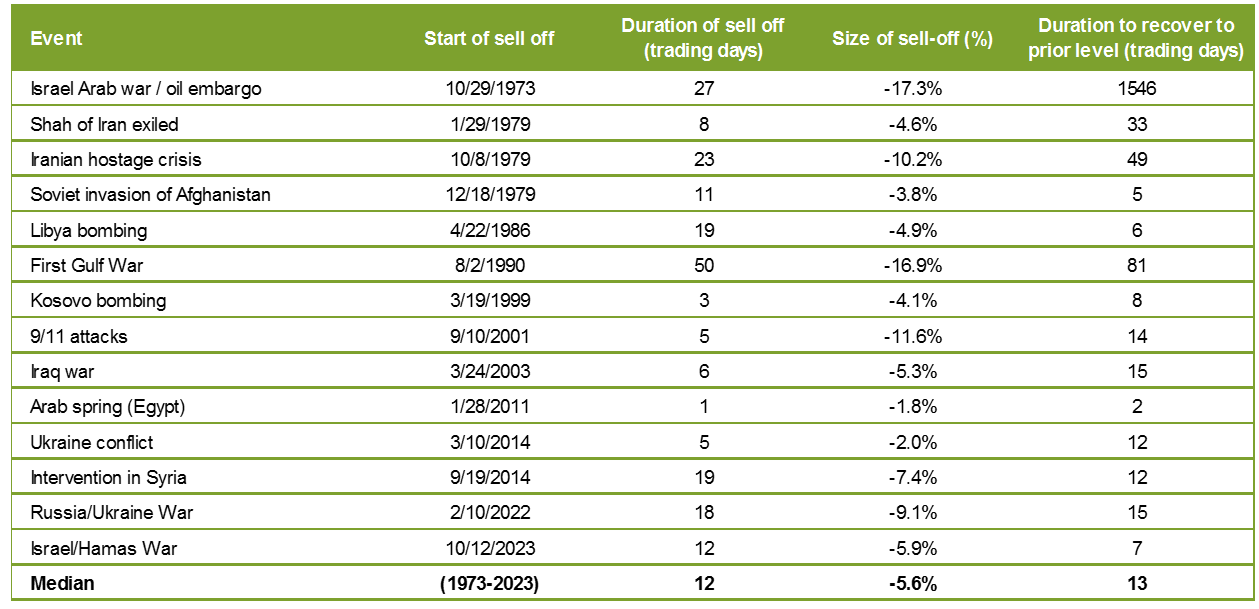Written by: Jack Manley
This past weekend saw an escalation in the conflict in the Middle East, with Iran launching an attack against Israel. The attack was in response to an earlier air strike on an Iranian consulate building and was notable as it marks the first time that Iran has attacked Israel directly – previously, both countries had been engaged in a decades-long “shadow war.”
News of the attack, which had been telegraphed in advance, has sent jitters through market sentiment. As a result, many investors may be asking: does conflict escalation in the Middle East change the investment outlook?
The short answer is that geopolitical tension is difficult to incorporate into any outlook, as so much of it is inherently unpredictable. A longer answer would identify how different pockets of the market could be impacted by this event: in this case, the most relevant area for analysis is commodities.
Oil prices have been steadily creeping higher since war broke out in the Middle East in mid-October last year. By the end of last week, in anticipation of the attack, the price of Brent breached $92 per barrel, its highest level since October, and gold continued its march higher.
Because neither Israel nor Palestine are producers or exporters of energy products, this rise in energy prices can be attributed to concerns that the conflict will continue to spill over into neighboring petrostates, like Iran or Saudi Arabia. An escalation in proxy conflicts could translate into increased shipping disruptions in the Red Sea, while a more direct conflict between these countries would likely result in large quantities of oil supply coming offline. Gold’s recent rise is likely linked to worsening investor sentiment, as it is typically seen as a safe haven asset during periods of stress.
However, in the aftermath of the attack, prices for both commodities modestly retreated – the barrage was largely unproductive, as nearly all of Iran’s missiles and drones were successfully intercepted. Moreover, Iran declared that its political objectives had been met with the attack, signaling a potential de-escalation in tensions.
Ultimately, investors should recognize that while geopolitical headlines have the ability to capture market attention, the shocks to sentiment are often short-lived. Without a doubt, risks to the outlook are greater today than they were before this weekend’s attack, and investors should pay close attention to oil prices as the war continues to evolve. Still, a well-diversified investor with a long time horizon has been able to weather many storms over the decades – this should remain true looking forward, as well.
S&P 500 selloffs around geopolitical events

Source: Standard & Poor’s, Deutsche Bank, FactSet, J.P. Morgan Asset Management. Past performance is not a reliable indicator of current and future results.
Guide to the Markets – U.S. Data are as of April 16, 2024.
Related: Corporate Bonds: Constructive or Cautious? Evaluating Investment Approaches Amid Yields and Spreads


